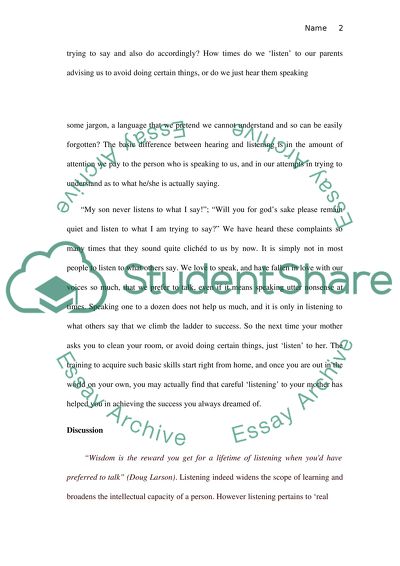Cite this document
(“How to Be a Better Listener Research Paper Example | Topics and Well Written Essays - 2250 words”, n.d.)
Retrieved from https://studentshare.org/miscellaneous/1569765-how-to-be-a-better-listener
Retrieved from https://studentshare.org/miscellaneous/1569765-how-to-be-a-better-listener
(How to Be a Better Listener Research Paper Example | Topics and Well Written Essays - 2250 Words)
https://studentshare.org/miscellaneous/1569765-how-to-be-a-better-listener.
https://studentshare.org/miscellaneous/1569765-how-to-be-a-better-listener.
“How to Be a Better Listener Research Paper Example | Topics and Well Written Essays - 2250 Words”, n.d. https://studentshare.org/miscellaneous/1569765-how-to-be-a-better-listener.


